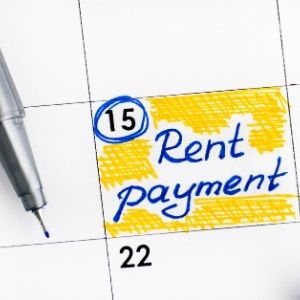Landlords across the nation collectively grimaced when President Trump, under the guidance of the Centers for Disease Control (CDC), issued an eviction moratorium through the end of the year 2020. You can read the full order here. While the announcement was a relief to struggling renters, it did little to shore up the financial situation of property owners and managers.
Here’s What Landlords Should Know About the Moratorium
Not Everyone Qualifies
To take advantage of the hold on evictions, renters must sign a document, under penalty of perjury, claiming that they meet the following criteria:
Landlords across the nation collectively grimaced when President Trump, under the guidance of the Centers for Disease Control (CDC), issued an eviction moratorium through the end of the year 2020. You can read the full order here. While the announcement was a relief to struggling renters, it did little to shore up the financial situation of property owners and managers.
Here’s What Landlords Should Know About the Moratorium
Not Everyone Qualifies
To take advantage of the hold on evictions, renters must sign a document, under penalty of perjury, claiming that they meet the following criteria:

- They have used their best efforts to obtain all available government assistance for rent.
- They expect to earn no more than $99,000 in annual income for Calendar Year 2020 (or no more than $198,000 if filing a joint tax return).
- They are unable to pay their full rent or make a full housing payment due to substantial loss of income or employment, or extraordinary medical bills.
- If evicted, they will become homeless or will be forced to move in with family members and friends in close quarters.
Learn about the CDC’s recent updates here.

- They have used their best efforts to obtain all available government assistance for rent.
- They expect to earn no more than $99,000 in annual income for Calendar Year 2020 (or no more than $198,000 if filing a joint tax return).
- They are unable to pay their full rent or make a full housing payment due to substantial loss of income or employment, or extraordinary medical bills.
- If evicted, they will become homeless or will be forced to move in with family members and friends in close quarters.
Rent Must Still Be Paid
While the moratorium does eliminate the stress of having nowhere to live during a global pandemic, it does not forgive the rent that is owed. Once the moratorium expires on December 31, 2020, landlords may require payment in full for all rent charges and fees not paid during the temporary halt. In the meantime, renters must agree to make partial payments to the best of their ability.
Late Fees are Fair Game
Fees, penalties, and interest for not paying rent can still be charged or collected in compliance with the tenancy, lease agreement, or any other contract. However, it is advisable to apply these fees and charges with caution. Communicate with your tenant about what they’re able to pay and when and if they meet those obligations, consider withholding further penalties while they work to improve their financial situation.
Seek Assistance
Help your tenant find local programs that are offering loan assistance. Encourage them to contact The United Way (simply dial 211 ), justshelter.org, or other government agencies. Any assistance now will ensure that when the moratorium expires, renters are not staring at a massive pile of owed back rent with no way of paying.
Learn about the CDC’s recent updates here.
Rent Must Still Be Paid
While the moratorium does eliminate the stress of having nowhere to live during a global pandemic, it does not forgive the rent that is owed. Once the moratorium expires on December 31, 2020, landlords may require payment in full for all rent charges and fees not paid during the temporary halt. In the meantime, renters must agree to make partial payments to the best of their ability.
Late Fees are Fair Game
Fees, penalties, and interest for not paying rent can still be charged or collected in compliance with the tenancy, lease agreement, or any other contract. However, it is advisable to apply these fees and charges with caution. Communicate with your tenant about what they’re able to pay and when and if they meet those obligations, consider withholding further penalties while they work to improve their financial situation.

Seek Assistance
Help your tenant find local programs that are offering loan assistance. Encourage them to contact The United Way (simply dial 211 ), justshelter.org, or other government agencies. Any assistance now will ensure that when the moratorium expires, renters are not staring at a massive pile of owed back rent with no way of paying.
During the moratorium period, landlords should also seek relief if they are unable to meet their financial obligations. Speak with your creditor about postponing payments for a few months or reworking your contracts to allow for more flexibility during this health and economic crisis.

During the moratorium period, landlords should also seek relief if they are unable to meet their financial obligations. Speak with your creditor about postponing payments for a few months or reworking your contracts to allow for more flexibility during this health and economic crisis.
Make Paying Rent Convenient.
Encourage your tenants to make smaller payments in weekly or biweekly installments to reduce the burden of larger lump sum payments. The fewer hoops that your tenant has to jump through to make a payment, the more likely you are to get paid. Eliminate the hassle of money orders and personal checks. Collecting rent online is safe, convenient, and secure. It provides a reliable payment paper trail, and tenants can pay any time they’d like.
Make Paying Rent Convenient.
Encourage your tenants to make smaller payments in weekly or biweekly installments to reduce the burden of larger lump sum payments. The fewer hoops that your tenant has to jump through to make a payment, the more likely you are to get paid. Eliminate the hassle of money orders and personal checks. Collecting rent online is safe, convenient, and secure. It provides a reliable payment paper trail, and tenants can pay any time they’d like.
You Can Still Evict Trouble Tenants.
The current eviction moratorium only applies to evictions on the ground of nonpayment. Tenants can still be evicted if there is property damage, criminal activity, health and safety concerns, or if they aren’t meeting other terms of the lease agreement.
Subscribe to stay informed!
You Can Still Evict Trouble Tenants.
The current eviction moratorium only applies to evictions on the ground of nonpayment. Tenants can still be evicted if there is property damage, criminal activity, health and safety concerns, or if they aren’t meeting other terms of the lease agreement.







